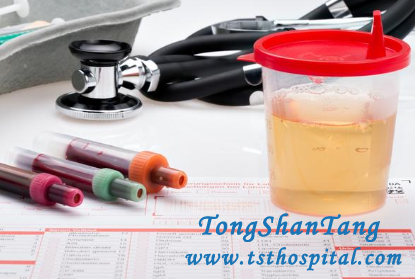 Proteinuria is a signal lamp for renal function. Although the more proteinuria does not mean the more serious the disease is, the long-term persistence of proteinuria makes the renal function of patients less optimistic.
Proteinuria is a signal lamp for renal function. Although the more proteinuria does not mean the more serious the disease is, the long-term persistence of proteinuria makes the renal function of patients less optimistic.
Although some patients attach great importance to reducing proteinuria, the result is often unsatisfactory. Why is that?
The kidney has more than 2 million kidney units, but when the kidney cells are damaged, the renal function damage is irreversible. With the aggravation of the inflammatory response, proteinuria begins to appear. The more serious renal function damage is, the more protein leakage occurs. If you only control proteinuria rather than protect the kidneys, it is just temporary medical relief. Besides, there are also some factors that affect proteinuria. If you do not pay attention to improvements of them such as medications, and diet management, the effects of proteinuria reduction will not be obvious.
Then how to reduce proteinuria and avoid its relapse? Inhibiting protein leakage can be achieved by medications within a short period of time, while protecting remaining renal function requires long-term treatment.
Long-term maintenance of proteinuria stability should be based on stable renal function, and 4 things should be done well:
1. Insisting on taking medicine to lower proteinuria. For the immune response of the kidney, some protein lowering drugs need to be taken for a long time. At present, hormone and immunosuppressive drugs commonly used are to follow the "long-acting principle". There are also anti-hypertensive drugs such as ACEI or ARBs, lipid-lowering drugs such as statins, which are also long-acting drugs. Taking them consistently to maintain blood pressure and blood lipids will help stabilize renal function and thus reduce proteinuria levels.
2. A low amount of high-quality protein diet. It can reduce the burden on the kidneys and meanwhile avoid aggravating proteinuria due to too much protein intake. If you do not have edema or dialysis, you can take 1g/kg protein, and it is better for you to choose food high in protein, such as meat, egg, milk, soybeans, etc.
3. A low-salt diet. Daily salt intake of normal kidney patients should not exceed 5g, and patients with edema and proteinuria should not exceed 3g. It is beneficial to reduce sodium retention in the body, and reduce renal damage, thereby reducing proteinuria level. Besides, excessive salt intake affect the efficacy of hypoalbuminic drugs, so decreasing salt intake can help you improve the efficacy.
4. Managing complications. In addition to proteinuria, hypertension, high blood sugar, high uric acid and so on can cause further damage to the kidney as well. So you should not only treat proteinuria, but also other severe symptoms so as to protect kidney function.
Hope the above information is helpful for you to control proteinuria. For more information on kidney disease treatment, please leave a message below or contact online doctor.
- Email:tsthospital@hotmail.com
- WhatsApp/WeChat/Phone Number:+86 15512139310
- Kidney Treatment Group:
- https://chat.whatsapp.com/2ZCOvebPJdr9QGkyfiqxDz
- Tag: CKD CKD Symptoms
- previous:5 Tips to Solve Hyperparathyroidism in CKD
- next:3 Ways to Help You Fight Against Refractory Proteinuria

